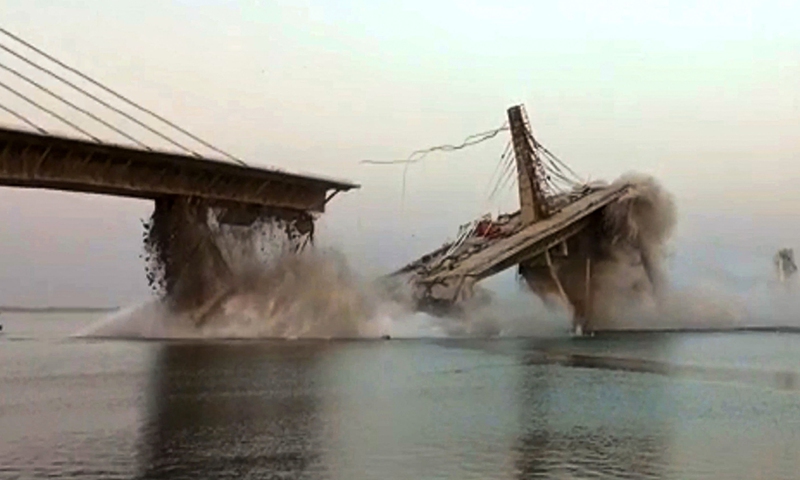While India was still reeling from the deadly train crashes that killed nearly 300 people on Friday, a bridge that is under construction over the Ganga river collapsed on Sunday. Although no casualties has been reported, the incident once again triggered a strong reaction in Indian society and the outside world, with heated debate over the country’s management on infrastructure construction and corruption problem.
The accidents have exposed a series of problems in India’s infrastructure projects, and they may also deter foreign investment from coming to India while the US and some of its allies have been hyping the so-called de-risking and decoupling from China and transferring some industries to India, experts warned. They called on India to put aside geopolitics and cooperate with China for better mutual development, as China is known as an “infrastructure maniac” around the world due to its mega projects.
The construction of the ill-fated Aguwani-Sultanganj bridge in Bihar’s Bhagalpur district began eight years ago and was set to be completed this year. Slabs of its three pillars collapsed in April last year, which delayed construction, the Xinhua News Agency reported.
Since then, deadlines of its inauguration have been postponed at least three times, Xinhua said.
The collapse of the costly bridge on Sunday and the train crashes on Friday are a microcosm of India’s infrastructure problems. If India wants to improve the level and quality of its infrastructure, it must address many fundamental issues, otherwise it will only get itself into deeper trouble, Long Xingchun, a professor of international relations at Sichuan International Studies University, told the Global Times on Monday.
He said that some infrastructure projects in India lack scientific and rational planning and design, as well as effective supervision and review mechanisms, making it difficult to ensure their feasibility and safety.
Considering that the bridge construction is not technically difficult, shoddily built projects resulting from corruption of officials could have contributed to the bridge collapse, Long believes, noting that the field of engineering and infrastructure is one of the worst hit by corruption in this big South Asian country.
India’s reluctance to cooperate with China out of geopolitical considerations will also slow down its infrastructure development, Long warned. He called on India to cooperate with China to learn from China its experience in management and campaign against corruption to build a better mutual future.
(Global Times)




